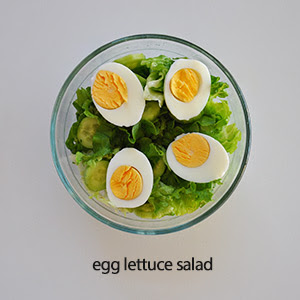Meal Planning
I have been busy trying my hands on some new workouts, eating plans and shuffling my time and life to keep body and soul alive and healthy.
One of the things I have been working on is Meal Planning. In the present economic condition we are in this country, everything evolves around planning including how and what we eat to avoid wastage, unhealthy habits and unnecessary stress.
Meal Planning is simply planning your meals ahead of eating them. The planning could just be an idea of the food or explicitly to include the quantity and quality of the food. For example, writing down water as my next meal is a planning but writing down 2 glasses of water is another version and a better one. It's better to be detailed enough while planning so that it would meet it's purpose, i.e. meeting a healthier lifestyle.
In other words ambiguity should be totally avoided when planning meals. If you plan to eat rice for dinner today, what style will it be? Jollof rice, plain rice, fried rice, rice & beans, rice w/veggies etc
In planning meals just like other forms of planning, you need a notebook or a journal to write things down, don't just keep it in your head, remember that a blunt pencil is still better than a smart memory.
Another important factor in planning meals especially on a budget is batch cooking.
Batch cooking is when you cook a food at a time and in a quantity and quality that will last you for days, weeks and even months, I have seen those that stored for a few years. In this side of the world, we do it always but we have some shortcomings that could turn it to a disaster. A good example is power outage, batch cooking could turn to a nightmare with power outage just for a day.
Leftovers is another diction that will be useful in a successful Meal Planning. One cannot always be precise when cooking, either for one, two or a larger family. We need to make plans for leftovers either by storing them and using in the next meal as side or main meal of some other days or following week depending on the time frame of the plan. I normally keep leftovers for a following week because I dislike altering meal plans.
Duration of planning is a good tool to equip oneself with. It could be daily, a few days or weekly or monthly. You can do what is most convenient for you and your family. I love planning daily and weekly, it's very convenient for me and exciting too, you should know by now that I get bored easily, including meals.
Style in terms of either a temporary, permanent or flexible meal plan is important. I don't want permanence [but I know some people do], for example eating the same lunch daily, I sure don't appreciate that. So I prefer a very flexible and adjustable meal plan where tweaking is a norm. I would really discourage a rigid roaster because you will end up in frustration, [trust me, I have been there] and the whole idea of eating healthy always crumble like cards. Roaster is monotonous!
Your planning must revolve around what stock you have in the house or in season. Don't plan for a coleslaw when a cabbage is costly, out of season or you will have to travel miles to get it. Which is why food roaster is not encouraged and the reason you will love a weekly meal planning as I do. At the beginning of the week, check your stock probably after getting the weekly groceries, and plan around what you have.
Lastly be creative. When there's boiled yam and eggs on your meal plan, you can try a new recipe that involves just yams and eggs, your family will thank and love you for it. A total or slight departure from the conventional cooking methods can also make you meals exciting.
Plan your meals ahead and I bet you are on your way to a consistent weight loss, stress-less days and budget friendly meals.
Keep on 'keepin on!
Photo credits: Darebee.com
Duration of planning is a good tool to equip oneself with. It could be daily, a few days or weekly or monthly. You can do what is most convenient for you and your family. I love planning daily and weekly, it's very convenient for me and exciting too, you should know by now that I get bored easily, including meals.
Style in terms of either a temporary, permanent or flexible meal plan is important. I don't want permanence [but I know some people do], for example eating the same lunch daily, I sure don't appreciate that. So I prefer a very flexible and adjustable meal plan where tweaking is a norm. I would really discourage a rigid roaster because you will end up in frustration, [trust me, I have been there] and the whole idea of eating healthy always crumble like cards. Roaster is monotonous!
Your planning must revolve around what stock you have in the house or in season. Don't plan for a coleslaw when a cabbage is costly, out of season or you will have to travel miles to get it. Which is why food roaster is not encouraged and the reason you will love a weekly meal planning as I do. At the beginning of the week, check your stock probably after getting the weekly groceries, and plan around what you have.
 |
| my humble recipe |
Plan your meals ahead and I bet you are on your way to a consistent weight loss, stress-less days and budget friendly meals.
Keep on 'keepin on!
Photo credits: Darebee.com




Comments
Post a Comment